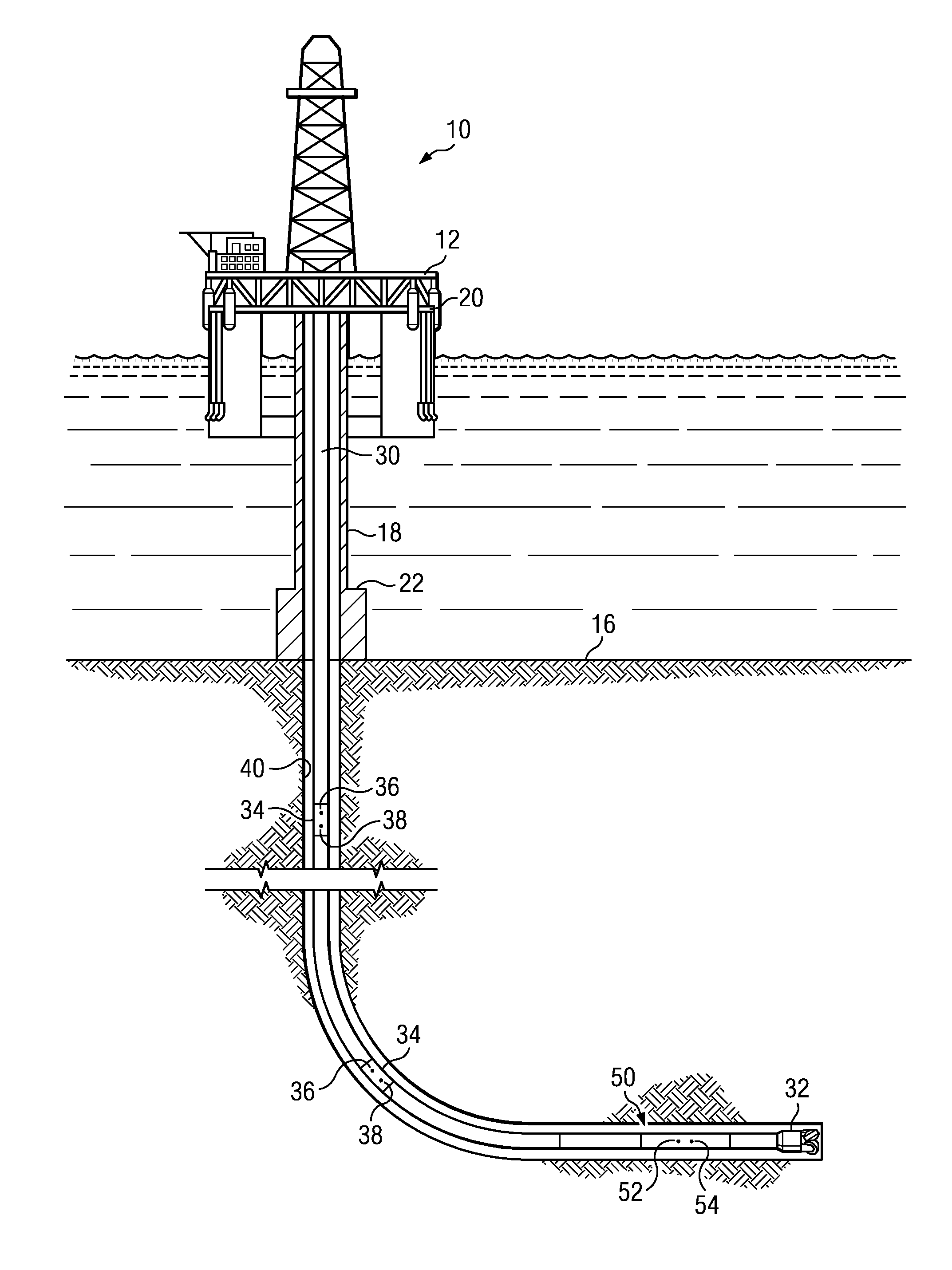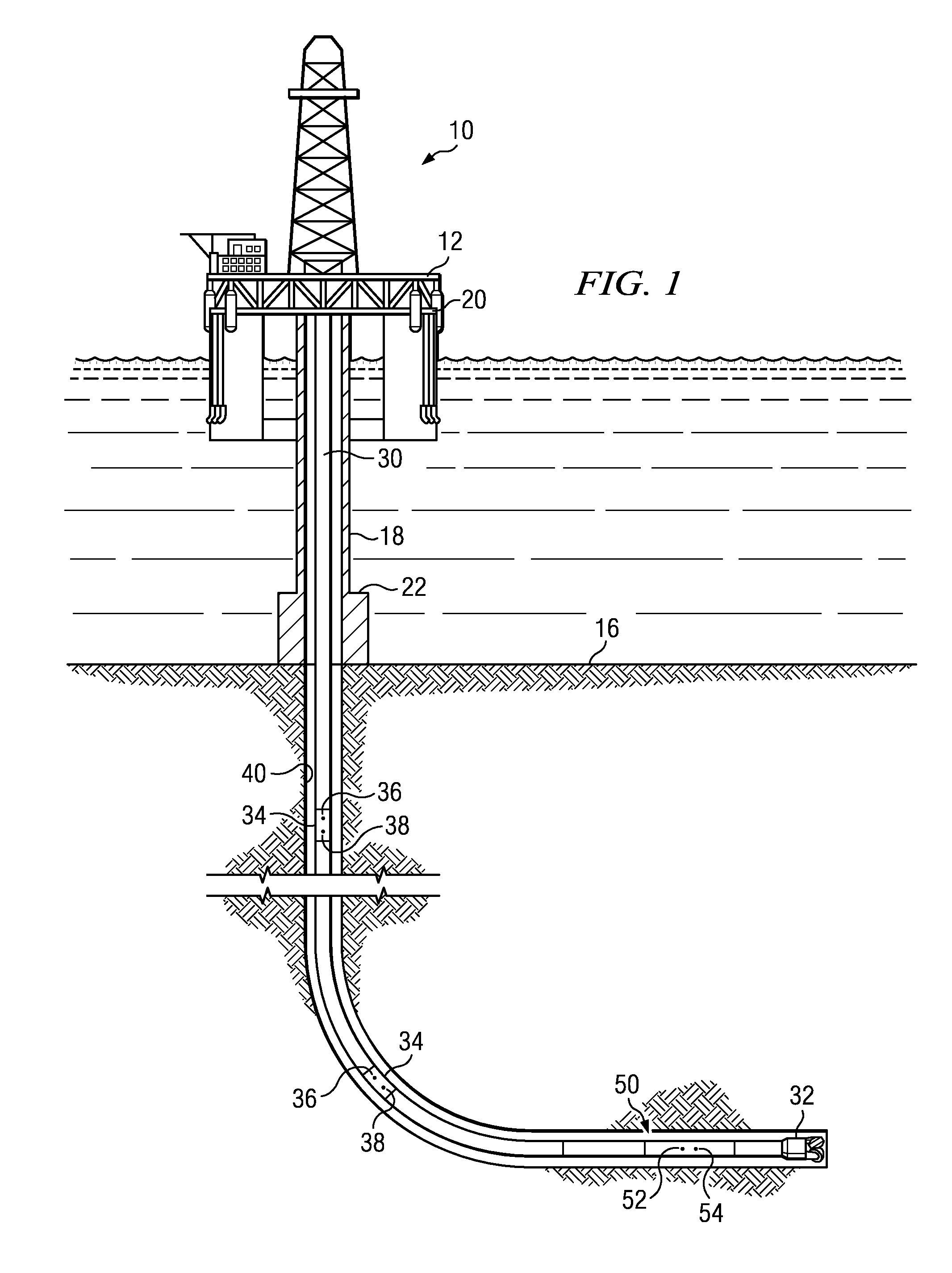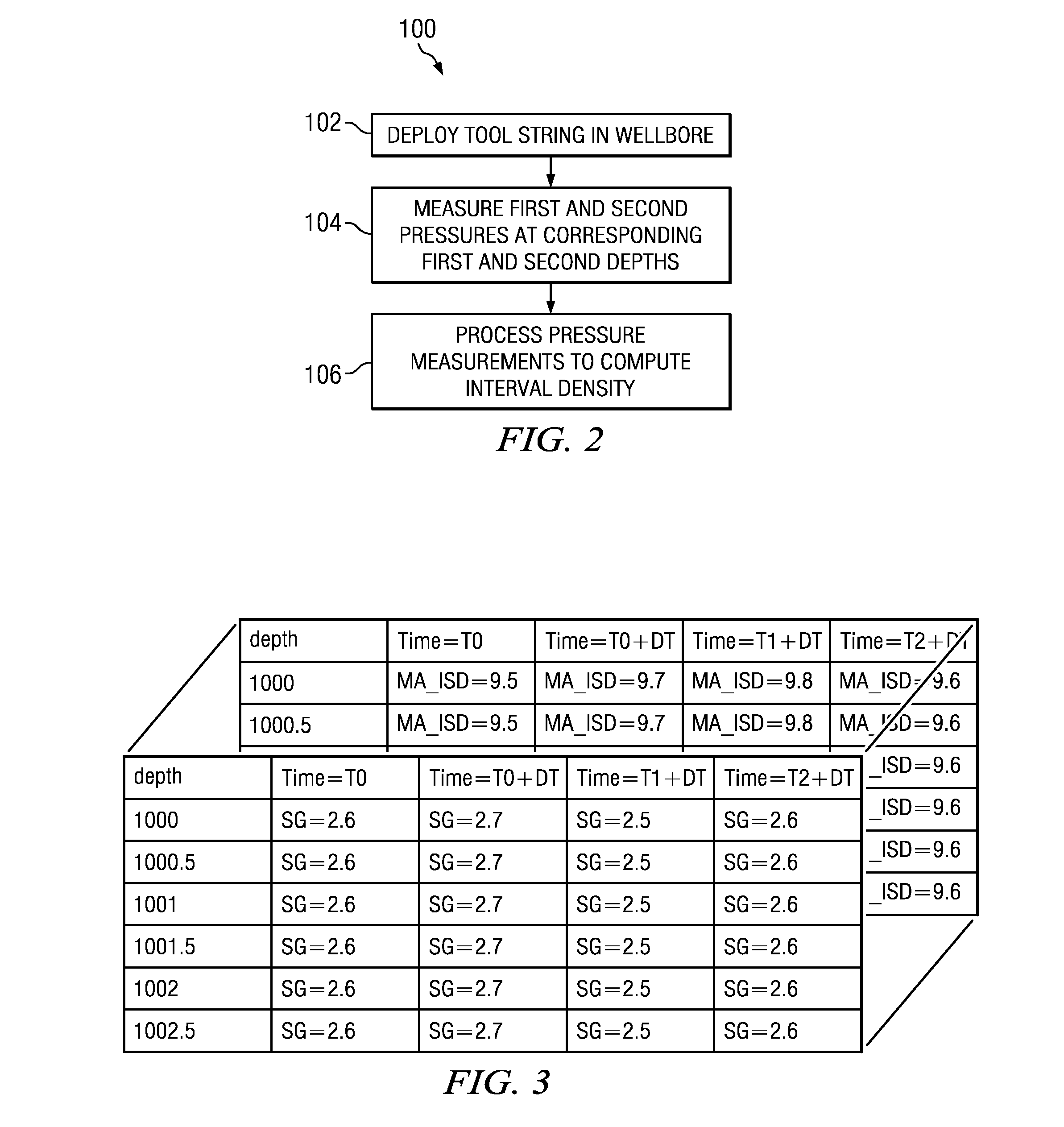Methods for evaluating inflow and outflow in a subterraean wellbore
a wellbore and subterranean technology, applied in the field of geotechnical field measurements, can solve the problems of prohibitively expensive and relatively minor interruptions in drilling operations, and no disclosure of methods for computing sequential
- Summary
- Abstract
- Description
- Claims
- Application Information
AI Technical Summary
Benefits of technology
Problems solved by technology
Method used
Image
Examples
Embodiment Construction
[0039]FIG. 1 depicts a drilling rig 10 suitable for using various method embodiments disclosed herein. A semisubmersible drilling platform 12 is positioned over an oil or gas formation (not shown) disposed below the sea floor 16. A subsea conduit 18 extends from deck 20 of platform 12 to a wellhead installation 22. The platform may include a derrick and a hoisting apparatus for raising and lowering a drill string 30, which, as shown, extends into borehole 40 and includes a drill bit 32 deployed at the lower end of bottom hole assembly (BHA) 50. In the depicted embodiment, drill string 30 includes a plurality of joints of wired drill pipe and therefore provides a high bandwidth digital communications channel (e.g., a bandwidth on the order of 5 kilobits / sec) between the BHA 50 and the surface.
[0040]Drill string 30 includes a plurality of longitudinally spaced wired drill pipe repeater subs 34, at least some of which include annular pressure and temperature sensors 36 and 38. These se...
PUM
 Login to View More
Login to View More Abstract
Description
Claims
Application Information
 Login to View More
Login to View More - R&D
- Intellectual Property
- Life Sciences
- Materials
- Tech Scout
- Unparalleled Data Quality
- Higher Quality Content
- 60% Fewer Hallucinations
Browse by: Latest US Patents, China's latest patents, Technical Efficacy Thesaurus, Application Domain, Technology Topic, Popular Technical Reports.
© 2025 PatSnap. All rights reserved.Legal|Privacy policy|Modern Slavery Act Transparency Statement|Sitemap|About US| Contact US: help@patsnap.com



